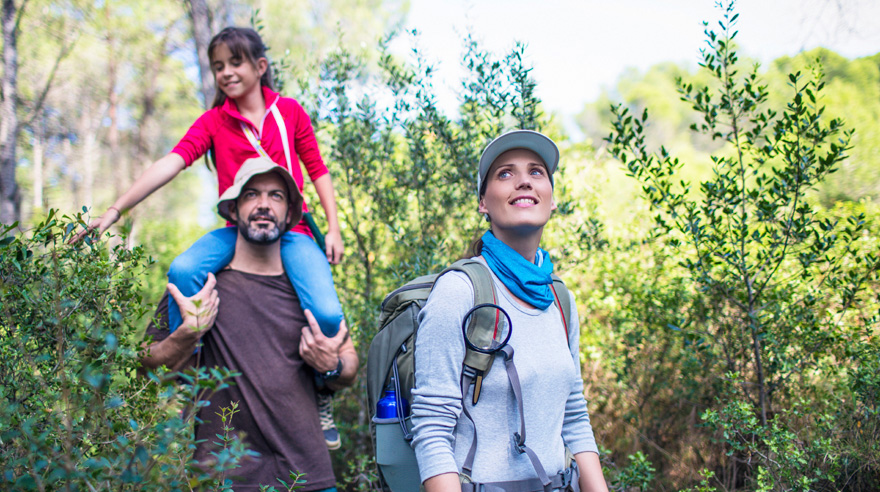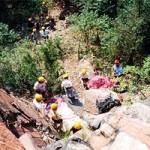
 Reduce your impact on other visitors. Being friendly and outgoing toward other hikers and campers is a natural trait of backcountry visitors, but every visitor has a desired level of socialization or solitude. Around shelters or designated camp sites, share news of the day’s events with other groups, and enjoy the camaraderie fostered by a dry spot in a rainstorm, but remember to be respectful of others’ needs for cooking and sleeping space, and for a good night’s sleep.
Reduce your impact on other visitors. Being friendly and outgoing toward other hikers and campers is a natural trait of backcountry visitors, but every visitor has a desired level of socialization or solitude. Around shelters or designated camp sites, share news of the day’s events with other groups, and enjoy the camaraderie fostered by a dry spot in a rainstorm, but remember to be respectful of others’ needs for cooking and sleeping space, and for a good night’s sleep.
Portable radios and tape players often disturb other visitors and wildlife. Technological “conveniences” such as cellular phones, GPS devices, etc. harms the integrity of the wilderness experience for many people. If you plan on using such items, do so unobtrusively and consider whether they contribute to the backcountry experience you are seeking, or instead cause you to miss elements of it.
If considering bringing a pet, check local guidelines and then accept the responsibility to keep it on a leash or under effective control at all times. A well behaved dog can be an excellent companion on the trail, but a rambunctious one can create undue impacts by frightening wildlife and other hikers, digging, and creating waste problems. Also remember that pets, like us, may be out of condition, ill-prepared for rugged terrain, and susceptible to injuries. All things considered, leaving a pet at home is often the wisest option.
Respect private land. Many access points and lands visited by backcountry visitors in the Northeast are privately owned. Make the effort to identify these lands. Cross them with the respect we would ask of strangers crossing our own property. Park your vehicle only in appropriate locations where it won’t interfere with roads or other travel-ways. Keep noise and visibility low, and do your part in picking up litter and helping to maintain the trail corridor in good condition. Each individual landowner may post or express specific concerns-obey them and alert others on the trail so that no inadvertent problems arise. Failure to respect private lands and landowners’ wishes can result in loss of access to everyone.



